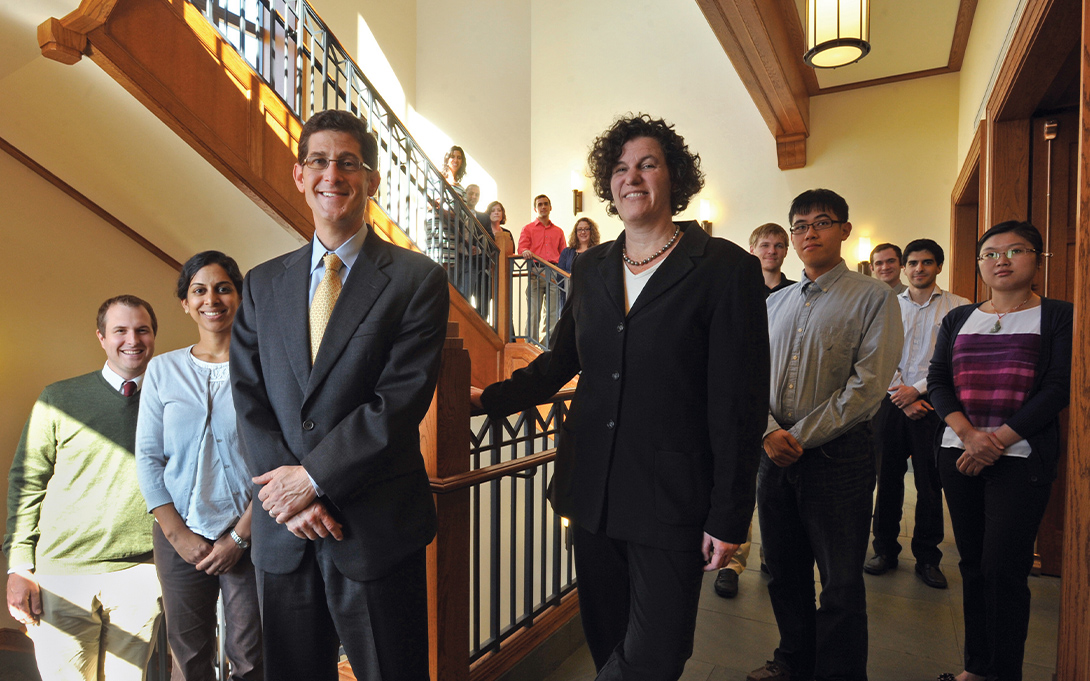
The Institute of Education Sciences (IES) in the U.S. Department of Education has renewed a 5-year, $4.6 million grant to support the University of Michigan's Education Policy Initiative Training Program in Causal Inference in Education Policy Research (CIEPR). First funded in 2015, the focus of this program is to prepare doctoral students to design, implement, and analyze research to causally evaluate education programs and policies in collaboration and partnerships with educational agencies.
Working closely with U-M’s foremost faculty experts in this field, the interdisciplinary program engages students from the Ford School of Public Policy, the School of Education, the departments of economics and sociology in the College of Literature, Science, and the Arts, and Rackham Graduate School.
The renewed grant will support 20 PhD students for 3- or- 4-year fellowships that include tuition and benefits, a stipend, and a small research fund. Fellows will: complete a series of courses that provide formal training in quantitative methods and contextual educational knowledge; work closely with a faculty mentor for a research apprenticeship in partnership with education practitioners or policymakers; and engage with eminent scholars in the field to expand professional networks and further develop knowledge. Once completed, fellows will earn a Certificate in the Education Sciences, jointly sponsored by the School of Education and Ford School.
Susan Dynarski, who holds appointments in the Ford School and the School of Education, as well as a courtesy appointment in the Department of Economics, has been director of the program and is joined in the next phase by co-director Christina Weiland of the School of Education, who is also faculty by courtesy at the Ford School.
Dynarski says, ”We are very excited to have the opportunity to build upon our success thus far, training the next generation of scholars to produce rigorous evidence regarding the causal impact of education policies, practices, and programs. Thanks to IES, we can continue to provide doctoral students with rich methods training, real world education data, and direct experience working with education policy makers."
One of the most dynamic parts of the training program is the interdisciplinary Causal Inference in Education Research Seminar (CIERS), attended by (and presented to) fellows and many other interested researchers throughout the UM community. This learning community also is supported by the IES grant, and is also open to other interested students and researchers at UM.
Weiland is looking forward to the next five years. “I am thrilled we will be able to strengthen our work in training students to conduct rigorous research that improves educational equity and opportunity, in collaboration with our research-practice partners,” she says.
The first five years of the program have supported 19 interdisciplinary PhD students in their research activities. Current fellows have grown and maintained research partnerships with the Michigan Department of Education, Tennessee Department of Education, Chicago Public Schools, Boston Public Schools, Los Angeles Unified School District, Michigan Department of Health and Human Services, and Michigan’s National Heritage Academies CMO among others. The program has resulted in a number of publications: 15 journal publications have been authored (or co-authored) by CIEPR fellows in training; the fellows have authored (or co-authored) seven non-periodical publications (i.e. book chapters, etc.), nine working papers with various education focused academic organizations, and seven policy briefs.
Max Gross (PhD Economics ’20), who recently joined Mathematica as a researcher in its Human Services Division said, “The IES predoctoral fellowship was a phenomenal opportunity during my doctoral studies. It provided close access to faculty mentors, interdisciplinary training to become a more thoughtful education policy researcher, and a community of scholars who will be lifelong colleagues and friends.”
The Education Policy Initiative (EPI) is a program within the Ford School that brings together nationally-recognized education policy scholars focused on the generation and dissemination of policy-relevant education research. EPI conducts rigorous, applied, policy-relevant, evidence-based research informed by challenging policy questions that are relevant to education practitioners and are necessary to improve educational outcomes. EPI's primary goals include conducting rigorous research to inform education policy debates in Michigan and nationwide; disseminating best practices in education reform to local, state, and national policymakers, as well as to educational practitioners, parents, and students; training graduate students and others to conduct cutting-edge research in education; and facilitating interactions between students and faculty who share an interest in education reform.
More news from the Ford School